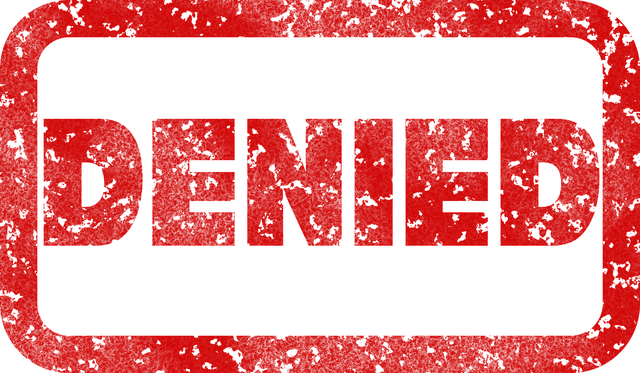What are Business Loans from Banks?
Traditional business loans from banks are a common funding source for small and large businesses. These loans typically come with strict eligibility criteria, including requirements for a strong credit history, a solid business plan, and collateral to secure the loan.
Banks often require businesses to have been in operation for several years and to demonstrate a consistent revenue stream. Banks may also require personal guarantees from business owners or significant stakeholders.
Meeting these eligibility criteria can be challenging for many businesses, especially startups or those with less established financial histories. However, for those who qualify, traditional bank loans can offer competitive interest rates and longer repayment terms compared to alternative lending options.
Why aren’t Banks Lending to Businesses?
Banks are holding on tight to their deposits and reducing lending for various reasons. Here are some of the most significant contributing factors to this trend.
Regulatory Constraints: The bank runs on Silicon Valley Bank, and Signature Bank created new regulatory requirements. Since the FDIC had to exceed the insured threshold to make investors whole, the new rules increased how much money banks must hold in reserve.
Interest Rates: Rising interest rates increase the cost of capital for banks. Consumers demand higher yields on savings and investment accounts, while rising rates also increase the likelihood of businesses becoming delinquent on loans. With the Chair of the Federal Reserve suggesting that an interest rate increase may be possible, banks are trying to hold on to more capital.
Uncertain Economic Outlook: Banks are already holding on to more deposits out of fear of increased delinquencies and defaults. A potential recession could further increase default rates, leading many banks to issue fewer loans and demand businesses pay down lines of credit and loan balances immediately.
Commercial real estate Lending Upheaval: The disruption to traditional workspaces by remote and work-from-home (WFH) policies is creating chaos with the significant amounts involved in commercial real estate loans. The growing acceptance of WFH is causing a great deal of uncertainty, especially for regional and small banks.
Tightening Lending Criteria: Bank loans already had strict eligibility requirements. With fears over small business cash flow restraints and the reasons listed above, banks have tightened credit quality criteria even further. This has left many small business owners seeking alternative business loans.
What alternatives do Businesses have for Loans?
Small business owners facing challenges with traditional bank loans can turn to alternative lenders. These lenders offer small business loans with faster application processes and more lenient requirements. Unlike banks, alternative lenders may be more willing to take a chance on businesses that don’t meet the strict criteria of traditional lenders.
You may be interested in one of the following small business loans available through our lender network here at UCS:
- Bad credit business loan.
- Business line of credit.
- Business loans for women.
- Business term loans.
- Equipment financing.
- Invoice factoring.
- Merchant cash advance.
- Revenue-based loan.
- SBA loans.
- Working capital loans.
- ERTC advance.
How do I apply for an Alternative Business Loan?
The first step is to find an available alternative lender. You can apply for a small business loan through our network of lenders by following the steps below.
The length of the application process depends on the product you choose. However, most products require very little paperwork and can be approved in just a few business days. Below, we’ll explain how to apply for each product, along with the documents they require:
Step 1: Choose the Right Product
The first step is choosing the right product for your needs and goals. This should require a decent amount of research, as each product is designed for different financial circumstances and cash flow cycles. Does your business experience occasional dips in revenue? Is your business highly seasonal?
You should also consider the purpose of the funds. How long will it take you to pay off the loan? This will help us determine the right borrowing amount and terms for you.
Step 2: Gather Your Documents
Here are the documents required for each type of business loan:
Business Term Loan
- Driver’s license
- Voided business check
- Bank statements from the past three months
SBA Loan
- Driver’s license
- Business license or certificate
- Voided business check
- Bank statements from the past three months (length of history varies)
- Credit report/Statement of personal credit history
- Credit card processing statements (length of history varies)
- Personal tax returns from the past three years
- Business tax returns from the past three years
- Business Plan (Not in all cases)
- Personal financial statement
- List of real estate owned
- Debt schedule
- Deeds/Title/Ownership documentation for any collateral/security
- Current Profit & Loss Statements and Balance Sheet Year-to-Date
- A/R and A/P Reports
- Lease/Rent documentation
Business Line of Credit
- Driver’s license
- Voided business check
- Bank statements from the past three months
Working Capital Loan
- Driver’s license
- Voided business check
- Bank statements from the past three months
Equipment Financing
- Driver’s license
- Voided business check
- Bank statements from the past three months
- Invoice for equipment
Merchant Cash Advance
- Driver’s license
- Voided business check
- Bank statements from the past three months
- Credit card processing statements from the past three months
Revenue-Based Business Loans
- Driver’s license
- Voided business check
- Bank statements from the past three months
Accounts Receivable Factoring
- Driver’s license
- Voided business check
- Bank statements from the past three months
- Business tax returns
- Account Receivable Aging report,
- Accounts Payable report
- Debt schedule
Step 3: Fill Out Application
You can begin the application process by calling us or filling out our one-page online application. Either way, you’ll be asked to enter the information from the previous section along with your desired funding amount.
Step 4: Speak to a Representative
Once you apply, a representative will contact you to explain the repayment structure, rates, and terms of your available options. This way, you won’t have to worry about surprises or hidden fees during repayment.
Step 5: Receive Approval
If approved, you’ll hear back from us within 24 hours. Funds for Business Term Loans, Business Lines of Credit, Working Capital Loans, Equipment Financing, Merchant Cash Advances, Revenue-Based Financing, and Accounts Receivable Factoring should appear in your bank account anywhere from 24 hours to one week. It usually takes 8-12 weeks at the very least for SBA Loans to receive funding.
What are the benefits of Alternative Business Loans?
Alternative business loans offer small business owners quick access to cash, which is crucial for covering unexpected expenses or seizing growth opportunities. These loans are more flexible and have less stringent application requirements than traditional bank loans, making it easier for small businesses to qualify.
Lenders consider factors beyond credit scores, such as company revenue and time in business, providing speed and flexibility in accessing funding. This can be highly advantageous for small business owners seeking quick financial solutions.
What are the drawbacks of Alternative Business Loans?
Alternative business loans often have drawbacks such as higher interest rates, stricter repayment terms, and limited access. Small businesses may face interest rates of 12% or more, impacting their financial strain.
Additionally, rigid payment schedules can affect cash flow and growth opportunities. Some alternative loans require daily or weekly repayments.
Alternative Business Loan Pros & Cons
Pros:
- Quick access to funds.
- Less strict eligibility requirements.
- Flexible repayment terms.
- Can be used for various business needs.
- Opportunity for businesses with poor credit to secure funding.
Cons:
- Higher interest rates.
- Shorter repayment periods.
- Potential for hidden fees.
- Limited loan amounts.
Frequently Asked Questions
Here are the most common questions about why banks aren’t lending.
Does the decline in Bank Lending affect more than Small Business?
Consumer lending from banks is also declining, making it harder for people to get approved for personal loans, such as mortgages and auto loans. This decline in consumer lending mirrors the difficulties experienced by small businesses.
The impact of rising interest rates and increased loan rejections has created a ripple effect across both business and consumer sectors. As a result, borrowing money through conventional banking channels has become more challenging. Just like small businesses, individuals are seeking alternatives to traditional bank consumer loans due to the challenges they face.
The decline in bank lending also impacts the overall economy. When businesses and consumers struggle to secure bank financing, it can hinder economic growth and development.
Small businesses drive economic activity, create jobs, and contribute to local communities. Therefore, when these entities encounter barriers in obtaining essential funding, it can have widespread economic implications.
When will Banks start Lending again?
The timing of when you can borrow money from the bank again is uncertain. It depends on various factors like economic stability and regulatory changes that influence how comfortable banks feel about extending credit to smaller enterprises.
The current trend follows a similar pattern to the decline in lending during the Great Recession. It took years for the economy to recover and banks to start lending again. It might not take that long again, but the process will likely be a gradual increase rather than a sudden shift, just as in the 2010s.
Will Alternative and Non-Bank Lenders continue to grow?
The forecast for alternative and non-bank lending options for small businesses looks promising, with continued growth expected in the coming years. As traditional banks become more stringent with their lending criteria, small businesses are turning to alternative and non-bank lenders for easier access to capital.
This trend is likely to continue as these lenders offer more flexible terms, quicker approval processes, and a higher approval rate for small business loans. Additionally, the rise of fintech companies and online lending platforms has made it even easier for small businesses to secure the funding they need.
With the increasing demand for alternative lending options, it is anticipated that these lenders will continue to grow and expand their offerings to meet the needs of small businesses. Overall, the future looks bright for alternative and non-bank lending options for small businesses.
As an example, it’s business as usual for us here at United Capital Source. Our network of private and non-bank lenders is unaffected by the decline in bank loans.
Why Aren’t Banks Lending to Small Businesses – Final Thoughts
Understanding the challenges small businesses face in securing bank loans is crucial. The decline in bank lending affects businesses and has broader implications for the economy.
Exploring alternative business loan options and understanding their benefits and drawbacks can empower you to make informed decisions for your business’s financial needs. As non-bank lenders continue to grow, staying informed about the changing landscape of business financing is essential.
Contact us if you have more questions or to apply for a small business loan. Our alternative business funding experts can help you find the most advantageous options for your business needs.

















